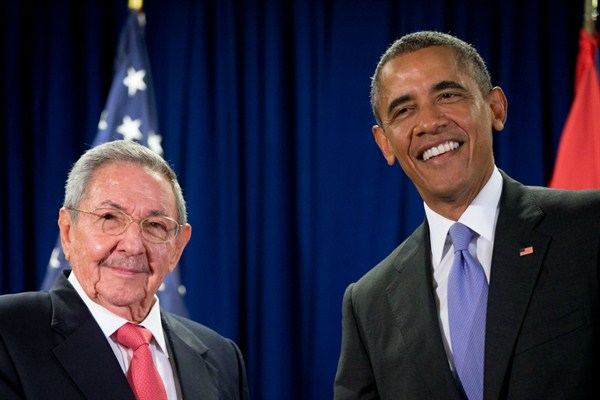On Thursday, the White House announced that President Barack Obama will visit Cuba next month, the first trip there by an American president since 1928. Obama will meet with Cuban President Raul Castro and members of civil society, including dissidents who have criticized Cuba’s human rights record.
U.S.-Cuba relations began to thaw in December 2014, when Obama and Castro announced the launch of a normalization process that would break decades of hostility. Last April, the Obama administration removed Cuba from the U.S. State Sponsors of Terrorism List, and in July, the Cuban flag was raised over the embassy in Washington for the first time since 1961. In August, the U.S. Embassy reopened in Havana.
Those moments, while historic, marked the beginning of what will be a long road toward fully normalizing U.S.-Cuba relations. Hurdles exist on both the diplomatic level and in U.S. domestic politics, particularly in the context of the 2016 presidential campaign. Most important, however, “is how relations progress with the Cuban government,” as Chris Sabatani wrote in WPR in January 2015. “Obama’s announcement didn’t wipe away decades of distrust and profound differences in how the U.S. and Cuba view human rights, democracy and national sovereignty,” he added, noting that directly after the announcement, Castro pledged his commitment to communism, and state security detained activists the following week.

